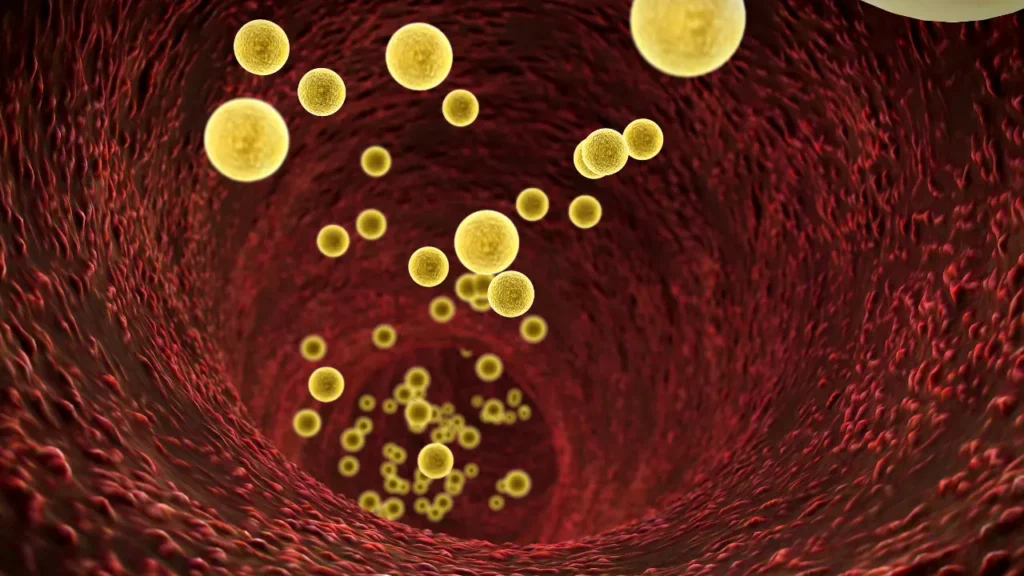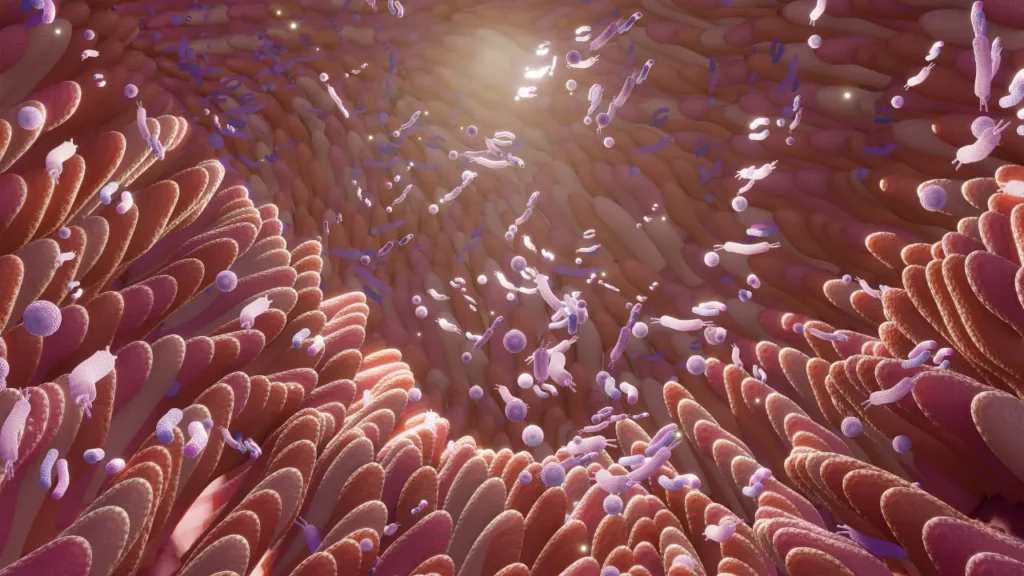Since ancient times, barley (Hordeum vulgare L.) has been widely cultivated and consumed as a cereal grain. It is a crop with many uses, including as a dietary supplement, food, and beverage. A increasing corpus of research has revealed the multiple health advantages of barley and its bioactive components over time. This page offers a thorough analysis of the nature, health advantages, recommended dosage, negative effects, possible drug interactions, and most ethical applications of barley as a dietary supplement. The technical intricacies of barley’s chemistry and its physiological methods of action on the body and brain are also covered in length in this review.
You May Also Like:
Boxwood: Benefits, Dosage, Side Effects, Drug Interactions, and Other Important Information
Corkwood Tree: Benefits, Dosage, Side Effects, Drug Interactions, and Other Important Information
BARLEY: Benefits, Dosage, Side Effects, Drug Interactions, And Other Important Information is an original (NootropicsPlanet) article.
Nature of Barley
One of the first cereal grains to be grown, barley is a member of the Poaceae grass family. About 70–80% of it is made up of carbohydrates, followed by 10–14% of proteins and 15–17% of dietary fiber. Beta-glucans, arabinoxylans, phenolic compounds, phytic acid, and tocopherols are just a few of the bioactive substances that may be found in barley. Among other things, these substances have anti-inflammatory, immunomodulatory, and antioxidant activities that support their potential health advantages.
Health Benefits of Barley
A form of soluble fiber called beta-glucan, which is abundant in barley, has been linked to enhanced cardiovascular health and lower cholesterol levels. In the digestive system, beta-glucans create a thick gel that can bind to bile acids and prevent the absorption of cholesterol. Through lowering blood cholesterol levels and promoting cholesterol excretion, this mechanism lowers the risk of cardiovascular illnesses like atherosclerosis, heart attacks, and stroke.
Additionally, beta-glucans, a type of soluble fiber found in barley, can also aid in controlling blood sugar levels. They slow down the bloodstream’s absorption of glucose by producing a gel-like substance, which causes blood sugar levels to rise gradually. For those who have type 2 diabetes, this characteristic is especially advantageous because it can regulate their postprandial blood glucose response and increase insulin sensitivity.
Due to its high fiber content, barley can help maintain a healthy gut microbiome and encourage regular bowel movements while also preventing constipation. The insoluble fiber in barley gives the stool volume, making it easier for it to move through the digestive system. Short-chain fatty acids are created as a result of the simultaneous fermentation of the soluble fiber by gut bacteria, which provides energy for colon cells and promotes gut health.
Ferulic acid, p-coumaric acid, and vanillic acid are phenolic chemicals found in barley that have antioxidant effects. Free radicals are reactive chemicals that can lead to oxidative stress and cellular damage, however these substances can counteract their effects. The phenolic compounds found in barley may help lower the risk of chronic conditions including cardiovascular disease and some types of cancer by scavenging free radicals.

Chemistry of Barley
Understanding the chemistry of barley’s bioactive components and the physiological mechanisms by which they affect the body and brain is crucial to comprehending its health advantages.
Long-chain polysaccharides called beta-glucans are composed of glucose molecules connected by (13) and (14) glycosidic linkages. They are located in the barley and other cereal grains’ cell walls, including oats. Beta-glucans are soluble fibers that, when combined with water, create a thick gel that is essential to their physiological actions.
Physiological Mechanisms of Action
By producing a gel-like structure in the gastrointestinal tract that binds to bile acids, beta-glucans can reduce blood cholesterol levels. The liver produces bile acids, which are necessary for the digestion of dietary lipids, from cholesterol. When beta-glucans attach to bile acids, they prevent their absorption, encourage their excretion, and lower the amount of cholesterol available for bile acid production. This procedure induces the liver to produce more bile acids by drawing more cholesterol from the bloodstream, which ultimately lowers blood cholesterol levels.
By forming a physical barrier, the thick gel that beta-glucans produce in the digestive tract slows down the absorption of glucose into the bloodstream. This barrier slows down the breakdown and absorption of carbs, causing blood sugar levels to rise more gradually and the glycemic response to be lessened.

Optimal Dosage of Barley
The best amount of barley to take as a nutritional supplement depends on a person’s age, sex, and overall health. Nevertheless, numerous studies have indicated that ingesting 3–10 gm of barley beta-glucans per day may have considerable health advantages, particularly in reducing blood cholesterol levels and enhancing glycemic management. Before adding barley supplements to one’s diet, it is crucial to speak with a healthcare provider to establish the right dosage.
Side Effects of Barley
When included in a balanced diet and taken in modest amounts, barley is typically regarded as safe for the majority of people. However, some people might experience adverse effects or have certain contraindications to take into account.
When ingesting barley or barley-based supplements, some people may feel gastrointestinal discomfort such as bloating, gas, and abdominal pain. Barley’s high fiber content is mostly blamed for these symptoms, especially in people who aren’t used to eating a lot of fiber. Drinking enough water and gradually increasing your barley intake will help ease these symptoms.
Barley also contains gluten, a protein that, in some people, especially those who have celiac disease or non-celiac gluten sensitivity, can result in allergic responses or intolerance. Barley and its derivatives should not be consumed by people who are known to be sensitive or allergic to it or to gluten.
A component of barley called phytic acid has the capacity to bind to specific minerals like calcium, iron, and zinc and prevent their absorption. However, when ingested as part of a varied and balanced diet, phytic acid’s effect on mineral bioavailability is typically regarded as modest. Barley’s phytic acid level can be reduced by soaking, fermenting, or sprouting, which will improve the bioavailability of minerals.

Potential Substance Interactions with Barley
Certain drugs or chemicals may interact with barley, either reducing their effectiveness or having unfavorable effects. These interactions include, among others:
- Medications for diabetes: Barley may boost the effects of diabetes drugs, increasing the risk of hypoglycemia because it helps control blood sugar levels. Before including barley or barley supplements in their diet, people taking diabetes drugs should speak with their doctor.
- Antiplatelet and anticoagulant drugs: Vitamin K, which is found in barley and is essential for blood clotting, is present. A high consumption of vitamin K can reduce the effects of anticoagulant drugs like warfarin and raise the risk of blood clots. People who consume a lot of barley while taking anticoagulant or antiplatelet drugs need to be careful and talk to a doctor about their eating habits.
Always review your current medications before beginning any new supplement to reduce the chance of potential interactions.
Best Responsible Uses of Barley
Best practices for using barley as a dietary supplement must be followed in order to maximize its health advantages and reduce any potential adverse effects.
Before consuming barley or barley supplements, people should get medical advice, especially if they have known allergies or sensitivities, are taking medication, or have pre-existing medical issues. It is advised to gradually include barley into one’s diet to reduce gastrointestinal discomfort, enabling the digestive system to get used to the higher fiber intake. When taking barley or other high-fiber supplements, it’s important to drink enough water because it can speed up digestion and reduce gastrointestinal discomfort.
BARLEY:
Conclusion
Barley can be a helpful, high-fiber addition to your diet that can improve your gut health and promote a feeling of fullness after meals. It is important to steer clear of barley if you have celiac disease, though, due to it’s gluten content. To get the most out of barley, you can incorporate it into meals throughout the week.
Try options like soups or salads, which are often accompanied by a collection of other nutrition vegetables and grains that can boost the positive effects of barley. It is crucial to remember that, though barley can be a nutritious addition to your diet, it cannot replace your prescribed medicines. Any supplement or change in medication should be discussed with your medical provider first.

References:
- Barley beta-glucans in the prevention and treatment of cardiovascular diseases. Retrieved from: https://www.ncbi.nlm.nih.gov/pmc/articles/PMC6478010/
- Barley: a potential cereal for producing healthy and functional foods link: https://academic.oup.com/fqs/article/doi/10.1093/fqsafe/fyac012/6532626
Important Note: The information contained in this article is for general informational purposes only, and should not be construed as health or medical advice, nor is it intended to diagnose, prevent, treat, or cure any disease or health condition. Before embarking on any diet, fitness regimen, or program of nutritional supplementation, it is advisable to consult your healthcare professional in order to determine its safety and probable efficacy in terms of your individual state of health.
Regarding Nutritional Supplements Or Other Non-Prescription Health Products: If any nutritional supplements or other non-prescription health products are mentioned in the foregoing article, any claims or statements made about them have not been evaluated by the U.S. Food and Drug Administration, and such nutritional supplements or other health products are not intended to diagnose, treat, cure, or prevent any disease.


